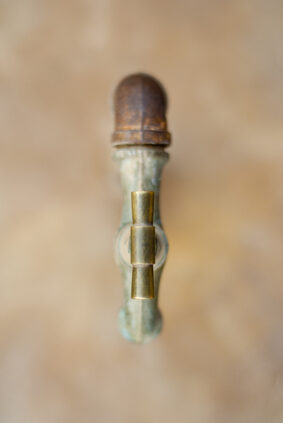
Corrosion is a complex series of reactions between the water and metal surfaces and materials in which the water is stored or transported. The corrosion process is an oxidation/reduction reaction that returns refined or processed metal to its more stable ore state. This process will occur in any situation in which two dissimilar metals are connected directly or indirectly by an electrolyte, such as water.
With respect to the corrosion potential of drinking water, the primary concerns include the potential presence of toxic metals, such as lead and copper; deterioration and damage to the household plumbing; and aesthetic problems, such as stained laundry, bitter taste, and greenish-blue stains around basins and drains.
Nearly all metals will corrode to some degree. The rate and extent of the corrosion depends on the degree of dissimilarity of the metals and the physical and chemical characteristics of the flow media, the metal and the environment. Corrosion can also be accelerated by:
- Low pH (acidic water) and high pH (alkaline water)
- High flow rate within the piping
- High water temperature
- Oxygen and dissolved carbon dioxide
- High amount of dissolved solids, such as salts and sulfates
- Presence of suspended solids, such as sand and sediment
- Bacteria
Corrosion will inevitably take place in piping, but it doesn’t have to run rampant. Superior Water’s WATERBOY system can reduce water-induced corrosion in your home. Contact us for more information.

![3670104[1]](https://superiorwater.com/wp-content/uploads/2021/03/36701041-150x150.png)
![WQA[1]](https://superiorwater.com/wp-content/uploads/2021/03/WQA1.png)
![bbb-accredited-business-symbol-png-logo-17[1]](https://superiorwater.com/wp-content/uploads/2021/03/bbb-accredited-business-symbol-png-logo-171.png)
![800px-Flag_of_the_United_States[1]](https://superiorwater.com/wp-content/uploads/2021/03/800px-Flag_of_the_United_States1.png)